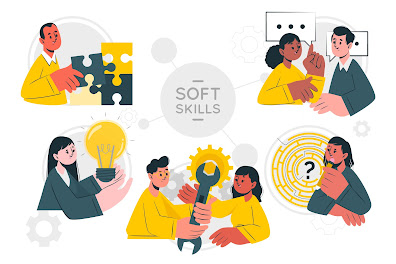The Power of Assessment: Transferable Skills from Level 3 Certificate in Assessing Vocational Achievement
Introduction
The Level 3 Certificate in Assessing Vocational Achievement program is a valuable stepping stone for those seeking a career in assessment. However, its benefits extend far beyond the realm of evaluating skills and knowledge. This program equips individuals with a robust set of transferable skills that can be leveraged across diverse career paths. Let's delve into the key skills gained and explore how they translate into future success, both as an assessor and in unexpected areas.
Communication: Clarity and Concision
Assessment hinges on clear communication. The program hones your ability to articulate complex criteria and assessment methods to learners with varying backgrounds. You learn to break down technical jargon, ensuring everyone grasps expectations. This translates into exceptional written and verbal communication – a core competency desired in numerous professions.
Observation and Active Listening
Effective assessment requires keen observation skills. You learn to identify strengths and weaknesses through observation of performance, interviews, and practical demonstrations. This skillset extends beyond the assessment room. In future roles, being a perceptive observer allows you to gauge client needs, team dynamics, and potential problems before they escalate.
Critical Thinking and Problem-Solving
Assessment isn't always straightforward. Ambiguous situations or unexpected challenges arise. The program trains you to critically analyze evidence, identify discrepancies, and make sound judgments. You develop the ability to troubleshoot, devising innovative solutions to ensure a fair and accurate assessment process. This problem-solving prowess is a cornerstone for success in various roles, from project management to customer service.
Feedback: The Art of Guidance
Providing constructive feedback is a crucial aspect of assessment. The program equips you with the ability to give feedback that is specific, actionable, and delivered in a way that motivates improvement. This skill is highly sought-after in leadership roles, coaching positions, and any field where guiding and developing others is essential. But here's a question that often pops up: How do you ensure your feedback aligns with SMART goals?
SMART Feedback for Enhanced Impact
SMART stands for Specific, Measurable, Achievable, Relevant, and Time-bound. By incorporating these principles, you can craft feedback that resonates with learners and drives effective progress. For instance, instead of a generic "improve your communication skills," a SMART feedback example might be: "During your presentation, use transitions between slides to improve clarity. Aim to include one transition per slide by the next assessment."
Adaptability and Lifelong Learning
The world of work is constantly evolving. The program emphasizes the importance of staying abreast of new assessment methodologies and industry trends. This fosters a mindset of continuous learning and adaptability. In future careers, you'll be adept at embracing change, navigating new technologies, and readily acquiring new skills – invaluable assets in today's dynamic job market.
Building Strong Relationships
Assessment often involves building rapport with learners. The program fosters empathy and the ability to connect with individuals from diverse backgrounds. You learn to actively listen, understand concerns, and provide a supportive environment. These interpersonal skills open doors in various fields, from human resources to sales, where building and maintaining strong relationships is paramount.
Benefits for Aspiring Assessors
For those aiming for a career in assessment, the Level 3 Certificate provides a solid foundation. The transferable skills translate directly into core assessor competencies. Here's a breakdown of how:
- Communication: Clear explanations of assessment criteria and effective feedback delivery.
- Observation: Meticulous evaluation of performance and identification of learning gaps.
- Critical Thinking: Applying appropriate assessment methods and making sound judgments.
- Feedback: Providing constructive and actionable feedback to promote development.
- Adaptability: Staying current with assessment methodologies and industry standards.
Beyond Assessment: Unexpected Applications
The beauty of transferable skills lies in their versatility. Beyond the world of assessment, these skills can be applied in numerous ways:
- Training and Development: The ability to deliver clear instructions, observe performance, and provide constructive feedback makes you a valuable asset in training and development roles.
- Management: Effective communication, critical thinking, and problem-solving skills are essential for successful leadership and team management.
- Entrepreneurship: Adaptability, communication, and critical thinking are key ingredients for navigating the challenges of starting and running your own business.
Conclusion
The Level 3 Certificate in Assessing Vocational Achievement program offers more than just a qualification. It equips you with a powerful arsenal of transferable skills that empower you to excel in diverse career paths. The ability to communicate effectively, think critically, provide constructive feedback, and adapt to change are valuable assets in today's dynamic job market. So, whether you choose to pursue a career in assessment or explore other avenues, remember, the skills you've acquired are a stepping stone to remarkable future success.

.jpg)


Comments
Post a Comment